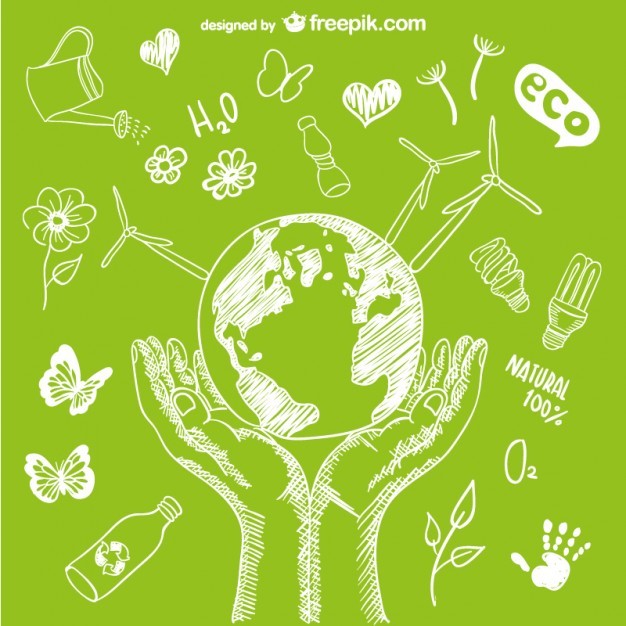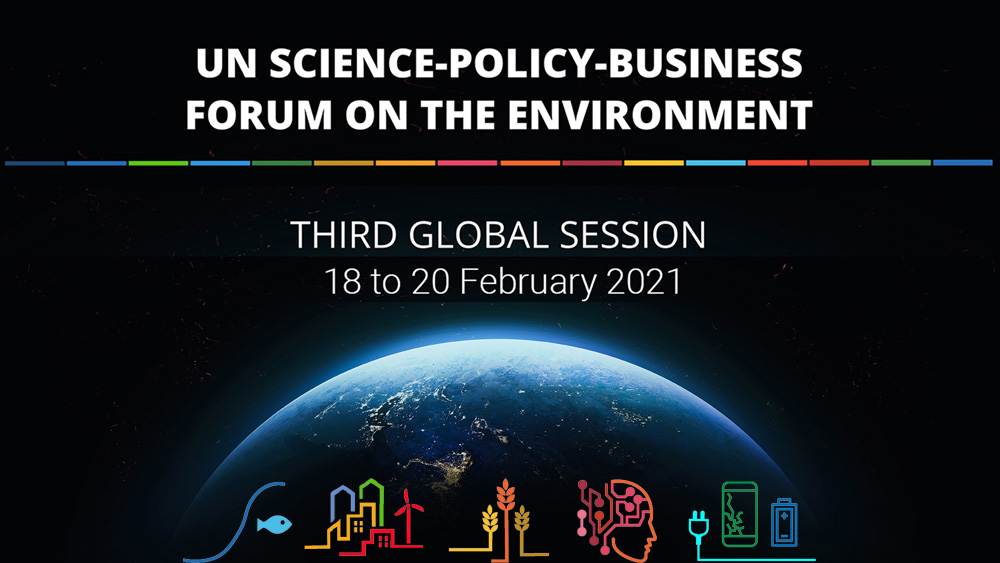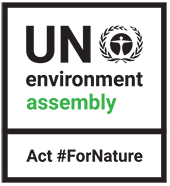Mentorship to empower African women in agribusiness
17 October 2024, Rome – The Food and Agriculture Organization of the United Nations (FAO) and…
The United Nations Environment Assembly is going virtual over 2 days from February 22 – 23, 2021 in order to cater to administrative and budgetary issues. This first part of the event will be called UNEA 5.I. Substantive matters that require in-depth negotiations will be deferred to a resumed in-person session in February 2022: UNEA 5.2.
5.I. Substantive matters that require in-depth negotiations will be deferred to a resumed in-person session in February 2022: UNEA 5.2.
Emerging Ag serves as the Secretariat of the Global Business Alliance for the Environment (GBA4E), as part of the Business & Industry Major Group. In this capacity, the Nairobi team (Mumbi, Irina, Priscilla and Pamela) was closely involved in the UNEA preparations and deliberations.
A number of virtual events supported the fifth session of the United Nations Environment Assembly. Let us look at those that have taken place already.
• Global Major Groups and Stakeholder Forum was held from February 9 to 11. The agenda focused on the discussion of the main messages from Major Groups and Stakeholders to UNEA. A joint statement was drafted to the Assembly from these discussions. Mr. Jim Donovan, co-chair of Global Business Alliance for the Environment (GBA4E) delivered a powerful closing statement noting the Private’s Sector’s commitment to sustainability as well as the need for partnerships and market-oriented approaches. All Major Groups were invited to participate in a meeting with the UNEA president to be held on February 16, as well as an upcoming dialogue with UNEP’s Executive Director on March 3, 2021.
• 5th Meeting of the Open-Ended Committee of Permanent Representatives (OECPR 5) was held from February 15 to 17, 2021. This meeting had member countries deliberating on the Medium-Term Strategy and Programme of Work as well as the renewed session of UNEA in 2022. At the Major Groups Dialogue with UNEA President H.E. Mr. Sveinung Rotevatn on the 16th, GBA4E co-chair Ms Margaret Munene, delivered a statement on behalf of the Business and Industry Major Groups. The statement noted the Business and Industry Major Group’s commitment to sustainability. The UNEA President H.E. Mr. Sveinung Rotevatn responded expressing readiness to continue engaging with all the Major Groups and indicated his dedication to safeguard biodiversity and fight pollution and climate change.
The Science Policy and Business Forum took place from February 18 – 20, 2021. This involved various events with the following highlights:
– The session on the Launch of the first SPBF Youth Track underlined issues relating to providing Green jobs for a Green economy for the Youth. Key aspects on Youth, Inclusivity, Children, Intergenerational Dialogue, Green Entrepreneurs and Green jobs were discussed.
– In the session on Addressing E-Waste through Tracking, Traceability and Circular Approach, the role of industry in dealing with E-Waste was strongly underscored with a call for Civil Society’s involvement. The Government of Ghana and Switzerland were requested to amend the Basel convention to reflect the current state of E-Waste.
– During the session dubbed Official Opening and Big Data and Frontier Tech: Powering the Transition to a Sustainable Future, the UNEP-IBM Pilot Marine Litter Digital Hub was launched. This presented a strong case for the role of digital tools for marine litter data management. More information can be found here.
The role of AI and Digital Tools for transforming industry as well as the role of data in environmental sustainability were highlighted.
Plastics and marine litter were pointed outas key drivers of a non-green economy.
The importance of Big Data for transitioning to a green economy was foregrounded.
There were also many side events including the following:
• Building back better and greener with agroecology virtual event
Launch of Transformative Partnership Platform on Agroecological Approach
A group of partners, namely ICRAF, CIRAD, Biovision, CIFOR, FAO and UNEP Advisory Group, have come together as part of a holistic Transformative Partnership Platform on agroecological approaches. The platform aims to build resilience of livelihoods and landscapes (TPP)as well as to accelerate and coordinate partners’ work on agroecology at the international, national and local scales, with the aim of fostering transitions to more sustainable and resilient agricultural and food systems. More information can be found here.
• Environmental Successes, Crossroads and Turning Points: Reflections on UNEP at Fifty Book Presentation
The book, authored by Professor Maria Ivanova, generated a lot of reflection on the efficacity of UNEP over the past 50 years. The general opinion was that UNEP had performed well in legislations, but needed strengthening in terms of enforcement, programmatic work, and financing.
• Ocean Action for Sustainability – Building a Global Vision to Tackle Plastic Pollution
This event demonstrated the commitment and leadership of Kenya, and the Africa Region, on the ocean agenda, including impactful efforts to protect human health and the environment from marine litter and plastic pollution, including microplastics.
• Launch of the Synthesis Report
A watermarked version of the Synthesis Report “Making Peace with Nature” has been made available for download here.
The report was launched by Mr. António Guterres, Secretary-General of the United Nations and Ms. Inger Andersen, Executive Director of UNEP
• Green Forum Global Launch – Pursuing Collaboration at Scale
The Green Forum is an online community space for exchanging insights on emerging knowledge and learning related to the pursuit of a sustainable economic transition. It aims at collaborating with Industry to tackle environmental issues and finding realistic measures to overcome climate change and environmental challenges.
You can read more about the Green Industry Platform here.
• Tackling Plastic Waste through the Basel Convention
The event gave an overview of new amendments to the Basel Convention which is the only legally binding instrument to specifically address plastic waste. Presentations showcased ongoing and upcoming projects being implemented as pilot projects across the 22 Basel Convention regional centers.
• Strengthening Non-State Actor Commitments for Biodiversity
This event underscored how non-state actor commitments support the urgency of action and ambition on the post-2020 global biodiversity framework. The panel discussed the crucial role of biodiversity in sustainable development.
Other events which took place on February 19, 2021 include:
– The Science Policy Forum, livestreamed here with sessions on Marine Litter and Bringing Nature to Cities
– 14:00 – 15:30EAT: Addressing Single Use Plastics Pollution with a Life Cycle Approach
– 15:30 – 17:00EAT: The Value-Chain Approach to Action on Sustainable Consumption and Production
– 17:00 – 18:00EAT: A Green Gigaton of Ambitions: Forest Solutions to the Climate, Biodiversity and Health Crises
As UNEA 5.1 begins on the 22nd of February, it will be interesting to see the launch of UNEP’s 2022-2025 Medium Term Strategy and the agenda for UNEA 5.2 as well as plans to commemorate UNEP’s 50th anniversary.
Medium Term Strategy and the agenda for UNEA 5.2 as well as plans to commemorate UNEP’s 50th anniversary.